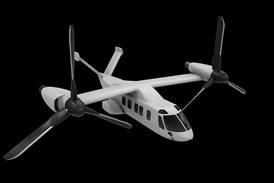IATA is working on establishing a new early-alert system to help flag to its members countries where a shortage of foreign currency reserves could risk airline funds become blocked as they have been in Venezuela.
Long-running challenges in Venezuela has seen IATA working to free airline funds trapped in the country. Despite its efforts, IATA estimates $3.8 billion worth of airline funds remains trapped in the troubled south American country.
But it is not the only country experiencing such challenges – indeed IATA during its AGM in Dublin issued a list of the five worst offenders. These also include Nigeria, Sudan, Egypt and Angola. IATA estimates airlines have more than $5 billion in airline revenues pending repatriation across these five countries.
“For the benefit of our members we are doing more work on gathering watchlists and developing an early-alert system for places that look like they could cause problems in future according to various economic and other parameters,” says IATA director general Tony Tyler.
“We are doing as much as we can as an association, but one of the things I have been urging our members to do is to engage their governments because universally under air services agreements and other trade agreements, governments are under an international obligation to allow airlines to remit the revenues to their own countries. And we have to remember, we are not talking about profits, we are talking about the operating cost.
The few airlines that have succeeded in repatriating portions of their revenue have usually done so at a loss, accepting a less favourable exchange rate than the one that was in place when the revenue was booked.
“Airlines have done a very good job of keeping Venezuela and Nigeria connected, probably beyond a rational business sense, because they want to keep these countries connected,” Tyler says. But he notes they have no option but to scrap flights if they cannot get paid for the cost of putting on the operation."
Lufthansa and LATAM Airlines have in the last week become the latest airlines to lose patience and scrap routes to Caracas. Those airlines that remain, have taken measures to limit their exposure – cutting frequencies and by selling airfares only in US dollars.
“Most of us have taken measures to ensure our exposure has not increased,” notes IAG chief executive and incoming IATA board of governors chairman, Willie Walsh.
“At IAG we have reduced our services to Caracas. We still operate there, we want to continue to operate there, but clearly it makes no sense for any airline to fly to a destination if it can’t get paid for it. So we keep the situation under review. But our exposure has not increased….and the same would apply to other economies which are struggling with foreign currency reserves.”
And he notes that most airlines learnt from the experience of Venezuela and restricted their exposure in that and other impacted markets.
Source: Cirium Dashboard























